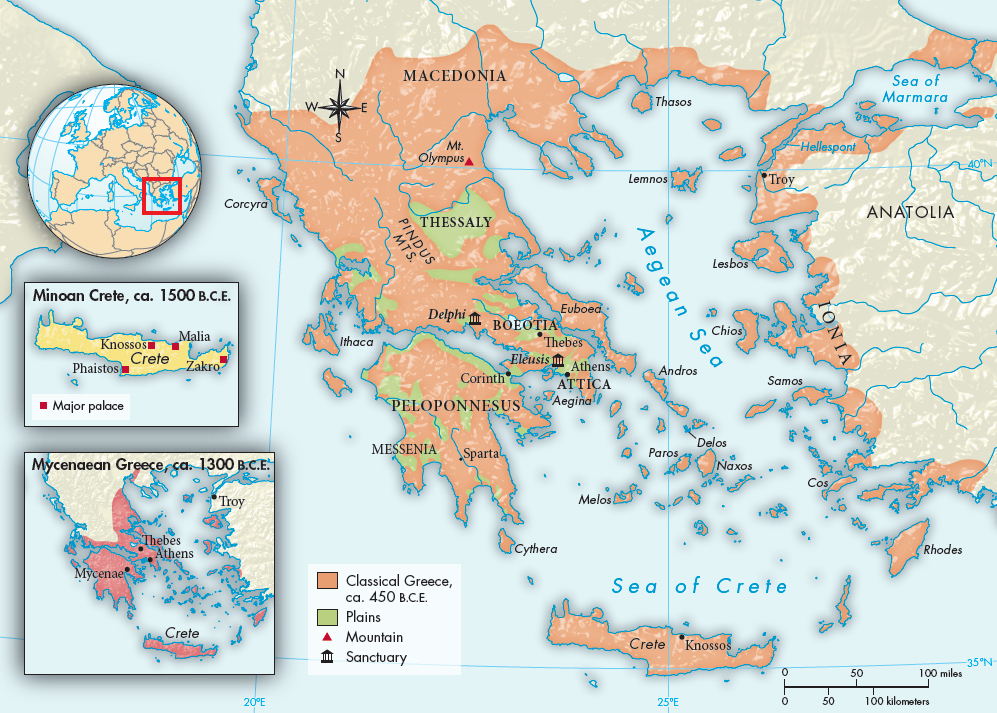The “Dark Age”
In Greece these invasions, migrations, disasters, and social problems worked together to usher in a period of poverty and disruption that historians have traditionally called the “Dark Age” of Greece (ca. 1100–
The Bronze Age Collapse led to the widespread and prolonged movement of Greek peoples, both within Greece itself and beyond. They dispersed beyond mainland Greece farther south to the islands of the Aegean Sea and in greater strength across the Aegean to the shores of Anatolia (see Map 5.1). By the conclusion of the Dark Age, the Greeks had spread their culture throughout the Aegean basin, and like many other cultures around the Mediterranean and the Near East, they had adopted iron.

Archaeological sources from the Dark Age are less rich than those from the periods that came after, so they are often used in conjunction with literary sources written in later centuries to give us a more complete picture of the era. These included tales of the heroic deeds of legendary heroes similar to the epic poems of Mesopotamia and the Ramayana in India. Sometime in the eighth or seventh century B.C.E. many of these were gathered together in two long epic poems: the Iliad, which tells the story of the Trojan War, a war similar to those fought by Mycenaean kings, and the Odyssey, which records the adventures of one of the heroes of that war. These poems were recited orally, and once writing was reintroduced to Greece, they were written down and attributed to a poet named Homer, though scholars debate whether Homer was an actual historical individual. The two poems present human and divine characters who are larger than life but also petty, vindictive, pouting, and deceitful, flaws that drive the action forward, usually with tragic results.
>QUICK REVIEW
What role did trade play in Minoan and Mycenaean society?